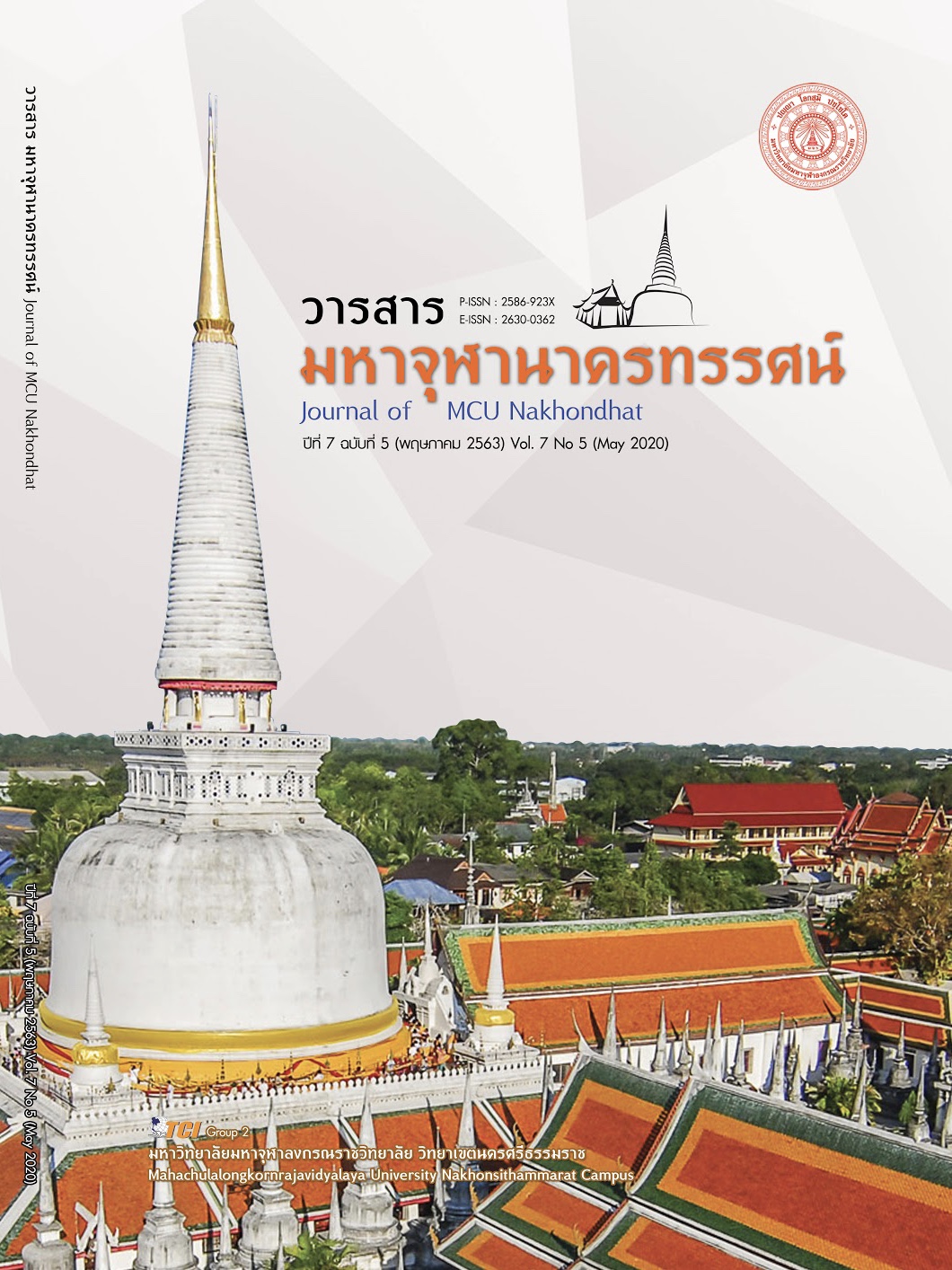BUDDHIST PHILOSOPHY IN THE DEVELOPMENT OF QUALITY OF LIFE
Main Article Content
Abstract
Development of quality of life in accordance with Buddhist philosophy Intended for trainers to gain benefits from the beginning. By taking action Know the principles of good behavior towards the external environment which is called organic compilations are the accumulation of eyes, ears, nose, tongue, body and mind so that they can be used as the basis of precepts, namely the intention to abstain from physical evils and the intent to abstain from verbal evils. This is called good behavioral development. Which is a way that develops the mind have a good idea and helps to create intelligence That flourish in order to develop behavior that is not persecuted but is behavior that is supportive basic human needs In order to develop the body, speech and mind to be able to think make decisions, solve problems, and adjust to be able to live life correctly and appropriately In the dharma spoke of being physically, mentally healthy, and long-lived, who gave him nutrition in respect a suitable time for the people consume the nutrients others give the name is given to give 4 statuses: age, caste, sooka and physical education. Being physically strong and free from illness. Have good mental health it can be seen that health is not just physical and mental only. But also to happily adapt to society should always maintain our health In order to have a happy mind, joyful, compassionate, conscious, and good quality of life, there must be physical, mental, emotional, intellectual, age, existence, progress, movement, possibility, and maintenance of life. To use various skills Including role playing in society with the development of quality of life in accordance with Buddhist philosophy.
Article Details
References
ธีรโชติ เกิดแก้ว. (2553). พุทธปรัชญา: มิติการมองโลกและชีวิตตามความจริง. กรุงเทพมหานคร: คอมเมอร์เชียลเวิลด์มีเดีย.
พระพรหมคุณาภรณ์ (ป.อ. ปยุตโต). (2549). พุทธธรรม. (พิมพ์ครั้งที่ 11). กรุงเทพมหานคร: สหธรรมิก.
พระมหาภัคศิษฐ์ มหาวิรีโย และพระมหามิตร ฐิตปญฺโญ. (2560). การพัฒนาคุณภาพชีวิตตามหลักภาวนา 4. วารสารบัณฑิตศึกษามหาจุฬาขอนแก่น, 4(1), 42-54.
พระสิทธิเดช สีลเตโช. (2561). การพัฒนาตน พัฒนาคน และพัฒนางาน ตามแนววิถีพุทธ. เรียกใช้เมื่อ 9 เมษายน 2563 จาก http://www.phd.mbu.ac.th
มหาจุฬาลงกรณราชวิทยาลัย. (2535). พระไตรปิฎกภาษาบาลี ฉบับมหาจุฬาเตปิฏก 2500. กรุงเทพมหานคร: โรงพิมพ์มหาจุฬาลงกรณราชวิทยาลัย.
มหามกุฏราชวิทยาลัย. (2506). พระไตรปิฎกภาษาบาลี. กรุงเทพมานคร: โรงพิมพ์มหามกุฏราชวิทยาลัย.
สนิท ศรีสำแดง. (2544). ปรัชญาเถรวาท. กรุงเทพมหานคร: มหาวิทยาลัยมหาจุฬาลงกรณราชวิทยาลัย.
สุนทร ณ รังษี. (2550). พุทธปรัชญาจากพระไตรปิฎก. (พิมพ์ครั้งที่ 3). กรุงเทพมหานคร: จุฬาลงกรณมหาวิทยาลัย.


